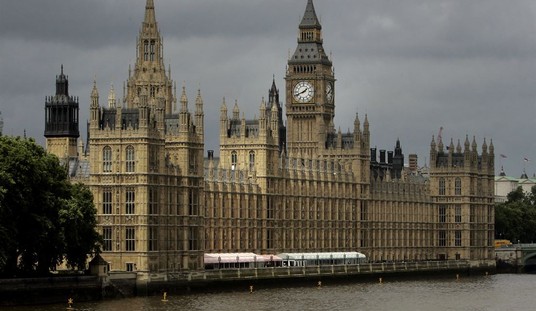Sen. Marco Rubio (R-FL) introduced a bill today to help ease the often-crushing burden of student loan debt by replacing interest payments with a one-time, non-compounding financing fee and establishing a new income-based repayment (IBR) plan.
The bill, titled the Leveraging Opportunities for Americans Now (LOAN) Act, earned the endorsement of the United Negro College Fund, and stands in sharp contrast to some of the impractical giveaways of taxpayer money proposed by several Democrats.
In a press release announcing the LOAN Act, Rubio’s office detailed several key elements of the bill:
- Beginning with the 2021 school year, all federal direct student loans will have one-time financing fees instead of interest, which will be paid over the life of the loan and not accumulate with age.
- This financing fee will not increase over time and it will finally give borrowers greater understanding of the actual costs of higher education.
- Borrowers enrolled in school but haven’t graduated before this date have their choice to continue using the current loan system or the new, interest free loans created by the LOAN Act.
- Borrowers will automatically be placed in an income-based repayment (IBR) plan, where they pay 10% of their earnings in excess of $10,000, except in times of unforeseen financial hardship.
- Borrowers can still choose the standard 10-year repayment plan, but this will no longer be the default.
- Borrowers that pay more towards their loan than necessary can have their financing fee reduced, ensuring there is still an incentive to pay off loans in advance.
- The borrower’s income would be verified by the Treasury based on tax filings. Those earning less than $10,000 annually would not have to contribute toward their loan.
“For years, our nation’s outdated federal student loan system has saddled working-class Americans with mountains of debt and accruing interest that they are unable to repay,” Rubio said. “The LOAN Act will ensure borrowers are not trapped in a cycle of debt. Instead of accruing interest, borrowers will pay a one-time financing fee paid out over the life of the federal loan and will be automatically placed in an income-based repayment plan. It’s time that our federal student loan system ensures that those pursuing higher education are able to achieve the American dream without burdening them with debt they can never repay.”
Rubio’s plan is in stark contrast to the proposal by Democratic presidential candidate Sen. Elizabeth Warren (D-MA) to eliminate college tuition and forgive about $1.5 trillion in student loan debt, for those making up to $250,000 per year.
As the Free Beacon noted, Warren’s plan has been slammed by multiple editorial boards including the Washington Post, Chicago Tribune, and USA Today as likely to “raise fundamental questions of fairness,” and only worsen the nation’s divide between rich and poor.
“Those who financed college through work study or taking time off to earn money would justifiably be outraged, as would those who scrimped and saved to pay off loans not eligible for forgiveness,” wrote USA Today. “The concept of debts as personal obligations would be undermined.”
Like many college graduates, when I was in high school, I faced the decision of whether to attend an in-state public university or a more expensive private or out-of-state public college. When considering the fact that I was likely to attend some sort of graduate school, the suggestion of accruing tens of thousands or even over a hundred thousand of dollars of debt for an undergraduate degree seemed foolish, and I chose to attend the University of Florida, where the combination of the state’s pre-paid tuition plan in which my parents had wisely invested plus the Bright Futures and other scholarship programs made college essentially free.
Even continuing on to law school, because I maintained Florida residency and continued at UF, the in-state tuition made law school very affordable, especially after a partial scholarship and working full time every summer, and part-time during my 2L and 3L years. I have no student loan debt at all, and that has allowed me a tremendous amount of financial and personal freedom, which would be impossible if I had a large loan to repay.
Many Americans have made similar choices as I did, to reduce their higher education expenses and allow themselves to graduate nearly or completely debt-free. Others have decided the debt was a worthwhile investment in their future and worked hard to pay off their debts. Rubio himself has spoken frequently of his own student loan debt of over $150,000, one he was finally able to pay off after 16 years when his autobiography, An American Son, became a bestseller.
Plans like Warren’s disrespect the millions of Americans who have made responsible choices to either minimize their student loan debt or to pay it off. Other Democrats like Sen. Bernie Sanders (D-VT) have also advocated for free college and massive debt forgiveness plans. In contrast to these financially imprudent giveaways, Rubio’s bill still requires college graduates to bear financial responsibility for their own educations, but eases the burden on those who need help the most.
Read my RedState article archive here.
Photo by Jamelle Bouie via Flickr.
Foliow Sarah Rumpf on Twitter: @rumpfshaker.
Cross-posted at The Capitolist.














Join the conversation as a VIP Member